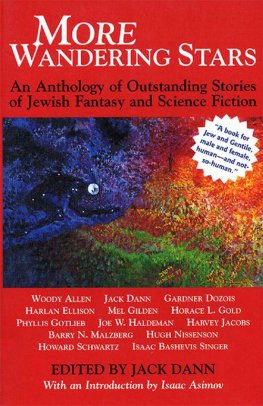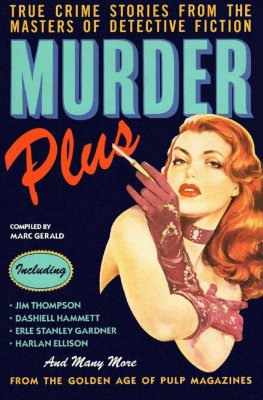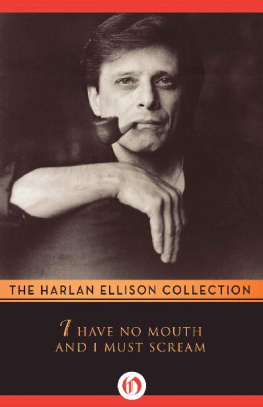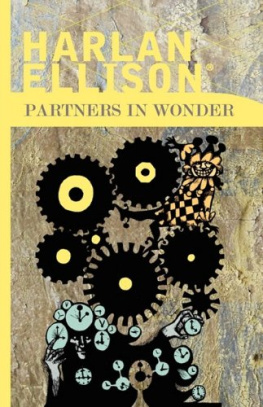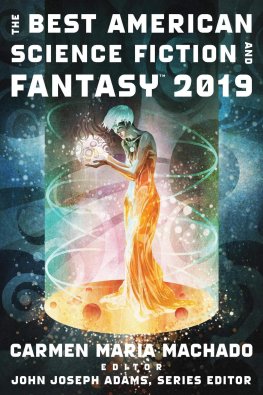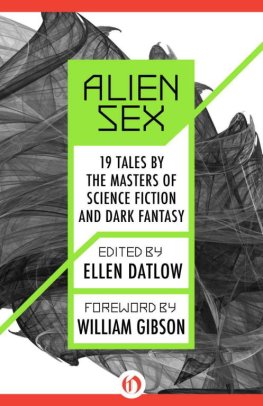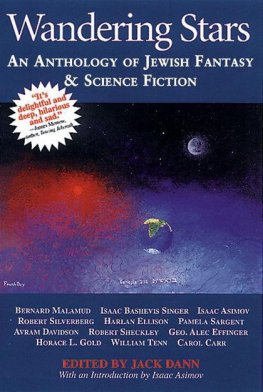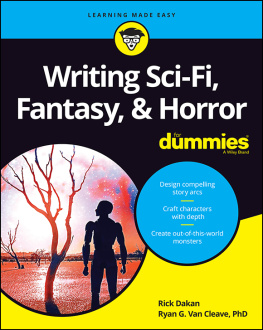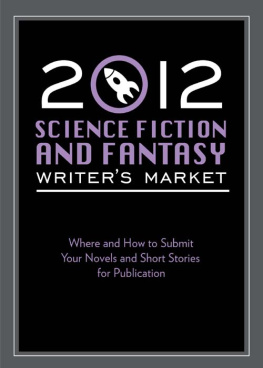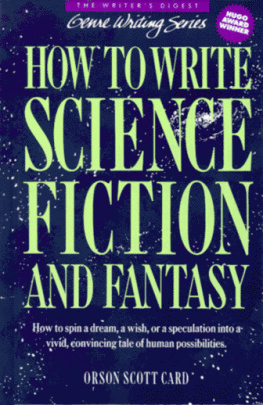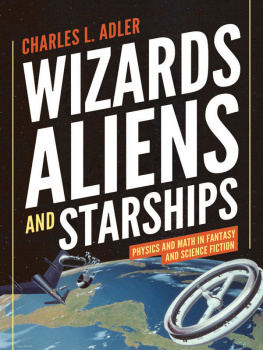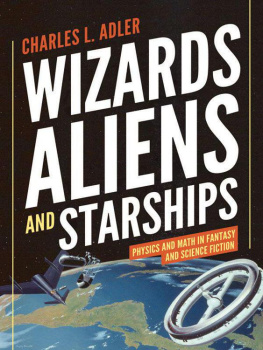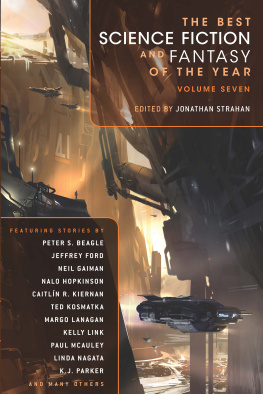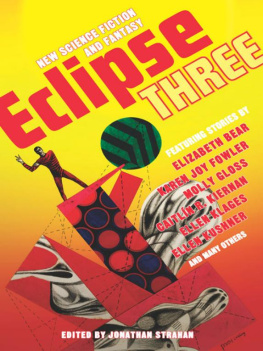MORE WANDERING STARS
AN ANTHOLOGY OF OUTSTANDING STORIES OF JEWISH FANTASY AND SCIENCE FICTION
Edited by Jack Dann
With an Introduction by Isaac Asimov
In memory of Edith N. Dann, who taught me everything important.
INTRODUCTION
The Hebrew Source
Isaac Asimov
Back in 1974, Jack (Yankele) Dann edited a book called Wandering Stars, which was a collection of stories of science fiction and fantasy with Jewish themes.
When I heard that Yankele had this in his head, I marveled.
Where, I asked myself, could such stories come from? How many stories with Jewish themes are written in this field? Here am I, a prolific science fiction writer and, by the kindness of the Holy One, a Jewish one, and how many stories have I written on Jewish themes? One, thats all. One. (Naturally, that one was eventually included in the collection.)
And, I went on, still talking to myself, how many other Jewish science fiction and fantasy writers can there be who work with Jewish themes? And except for them, who else? Surely, we can expect no Jewish themes from the goyim.
After considering that for a while, I answered myself, So Yankele is not going to make it.
Imagine my surprise, then, when Yankele came up with his collection. Imagine my even bigger surprise when he asked me to do the introduction.
Why me? I asked, plaintively. So he gave me an answer like this Shut up and write. (This my various editors say to me all the time, they should only feel an ache in their bones.)
I wrote the introduction, which I called Why me? and heaved an enormous sigh of relief when I saw Wandering Stars safely published because, I said to myself, Nu, that used up every good story ever likely to be written on a Jewish theme and I can now forget it.
Not well said! Here comes Yankele with another heaping handful of stories, from the Evil One knows where, and guess who has to write the introduction again.
Youve hit it.
So what do I say?
Ill tell you. I dont know.
What bothers me is where do the stories come from? Can science fiction be part of Jewish culture? From fantasy we know?
And as I think of it, it begins to seem to me that it is and we do know. And the source? From where else? From the Hebrew source for everything. From the Bible.
We have but to look through the Bible and see for ourselves.
At the very start, with the first verse, we have, In the beginning God created the heaven and the earth, or, as Moses our Teacher put it, Brayshith buru Elohim ayth hashomayim vayth hoorets.
Right there, weve got something. Weve got imagination.
The legends of other people also describe the creation, but with total lack of imagination. For instancea god kills a giant monster, tears it in half, makes the sky out of one half, the earth out of the other half, fashions the seas from the monsters blood, the mountains from his teeth, the trees from his hair, and who knows what else.
Its a plain lie, the whole story, and completely implausible. A junior high student wouldnt believe it; not even one with low marks, God forbid.
But how does God do it? A question!
In the third verse, it stands written, And God said, Let there be light: and there was light.
It was clearly the use of advanced science. God obviously has mastery over the laws of nature to an extent we have no conception of and, as Arthur C. Clarke (the Defender of Israel should be good to him) says: Any science sufficiently advanced beyond ours would seem like magic to us.
To a caveman, if you say, Let there be light, just as you quietly touch a contact so that suddenly there is light, would not that be to him a powerful magic? He would fall on his face and worship you like a god. Right? Of course, right.
And if you stop to think of it, what is God but an extraterrestrial? On Earth he certainly doesnt live. He might if he wanted to, but he existed before there was an Earth. He lives in Heaven, which, as everyone knows and admits, is in outer space somewhere. Probably in hyperspace.
So you see, out of logical reasoning, we come to the conclusion that the Holy Writings lead the way to science fiction.
You want more? In chapters 2 and 3 of Genesis, you have the story of Adam and Eve, which, it is clear to anyone, is the first story ever told in good detail of how human beings colonized a new world.
Adam and Eve even had to fight an alien intelligencethe serpent.
That the serpent was intelligent leaves no room for doubt, for in chapter 3, verse 1, it stands written, Now the serpent was more subtil [intelligent] than any beast of the field.
Right away, the serpent proves it because in that same verse he speaks. And not just Englishbut good first-class Hebrew.
Which in itself is a proof that the serpent was alien. Did you ever hear an Earthly serpent speak? In fact Earthly serpents are stupid. Theyre reptiles (and trayf, toofeh!). Believe me, the serpent in the Garden was an alien.
Theres a theory in the Apocrypha (see Revelation 12:9, 20:2) that the serpent was really Satan the Adversary (may the Lord protect us from him at every step) but if so, what is Satan? Not an alien? Of course an alien.
You can go on and on. Theres a tantalizing little story in the first four verses of chapter 6 of Genesis which clearly describes not only an extraterrestrial invasion but a little bit of lusting after Earth-women, just the way we used to have it on the covers of the science fiction magazines in the 1930s and 1940s. The Bible doesnt say whether the extraterrestrial invaders were bug-eyed, but I suspect they were.
And what about the Flood, in chapters 6 to 9 inclusive? Its not a story about a world catastrophe and the survivors? Of course it is!
And who can do it better even today? The whole world under water! Everybody killed! What a spectacle!
The Tower of Babel in the 11th chapter? Clearly a sophisticated technological society that proceeds forward without considering environmental and ecological consequences and gets into deep trouble. Very timely!
Nor is Genesis the only book that represents source material for science fiction and fantasy. In the Book of Exodus, the battle of Moses versus the Egyptian magicians is an example of advanced technological warfare.
And how about the parting of the Red Sea at the last minute with the hosts of Pharaoh in hot pursuit, and the turning back of the water to drown that host? Is that ingenious or not? Youve got to give Moses credit. Kimball Kinnison could not have done it better with one of his last-minute inventions.
The story of Samson is sword-and-sorcery, right? Hes a regular Conan the Cimmerian, right? Samson had the same kind of weakness for ladies who are, you should excuse the expression, plain chippies. And Delilah (the Angel of Death should only take her into the Pit) finally got him. And the real surprise ending? I wont spoil it for you in case you dont know, but youll find it in Judges 1316.
The first chapter of Ezekiel is a nice UFO account with extraterrestrials at the controls. We can still learn from it today.
If you wish, you can play a game with this anthology (which is so delicious, you could lick your fingers from it), one with fine intellectual content and spiritual usefulness. For each story, see if you can figure out the Biblical references. Ill start you off. In Tauf Aleph, ask yourself who was Og of Bashan (Numbers 21:3335).
Enough, already. The case is convincing. I see now why there are so many Jewish writers of science fiction and fantasy, and why so many Jewish themes are used.
In fact, it now seems to me that Yankele Dann (the Evil Eye should never come upon him) will come up with a third collection and even a fourth and a fifth.

